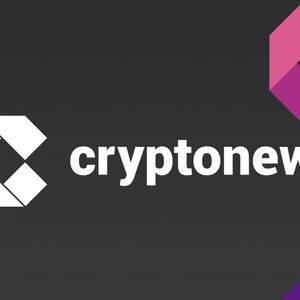The U.S. Senate Banking Committee announced Tuesday a set of principles for developing market structure legislation. The principles were released by Senate Banking Committee Chairman Tim Scott, Digital Assets Subcommittee Chair Cynthia Lummis, Senator Bill Hagerty, and Senator Thom Tillis. The principles suggest considering existing law to provide predictability, enhanced legal precision, and much-needed regulatory certainty. Senator Tillis said their priority must be providing legal clarity and certainty without stifling innovation as Congress considers a regulatory framework for digital assets. Principles seek to define the legal status of digital assets 🚨NEW: @SenatorTimScott , @SenLummis , @SenThomTillis , & @SenatorHagerty unveiled principles for digital asset market structure legislation. These will guide bipartisan efforts to bring regulatory clarity, foster innovation, & protect investors. Read more: https://t.co/5NVwlsUvlZ — U.S. Senate Banking Committee GOP (@BankingGOP) June 24, 2025 The senators revealed that the guidelines aim to direct discussions and negotiations with industry participants, legal and academic experts, and government stakeholders regarding the legislative text. The principles also emphasize the need for legislation to clearly define the legal status of digital assets. Senator Lummis argued that America desperately needs digital asset legislation that promotes responsible innovation and protects consumers. She also noted that while the European Union and Singapore have established clear regulations, the U.S. is left behind while the crypto sector seeks greener pastures. The officials believe there must be a clear rationale distinguishing digital asset securities from digital asset commodities. According to the Senators, the distinction should also be fixed in statute, contemplating existing law and providing predictability, enhanced legal precision, and regulatory certainty. “For too long, a lack of clear regulatory authority has forced digital asset innovation beyond our borders and subjected issuers, exchanges, and developers to crippling uncertainty. By working towards a reasonable, light-touch market structure framework, we can help bolster our nation’s economy and protect American consumers.” – Bill Hagerty , U.S. Senator of Tennessee. The Senate also advocates for a clear delineation of jurisdiction among regulatory agencies, preventing an all-encompassing regulator from emerging. The principles recognize that not all distributed ledger technologies should fall under the regulation of the U.S. Securities and Exchange Commission (SEC) and the Commodity Futures Trading Commission (CFTC). The U.S. officials proposed a new SEC exemption for certain digital asset fundraising to be included in the legislation. They also want the agency to revisit its registration requirements for digital asset issuers and instead provide a clear pathway to compliance for innovative actors. According to the Senate, legislation should recognize the different risks and benefits between centralized firms, decentralized finance protocols, and non-custodial software platforms. They proposed that legislation should not apply principles designed for centralized firms to decentralized protocols. The principles also suggest that using distributed ledger technology and smart contracts for other, non-financial purposes, such as managing health data, should not be regulated like financial products. The Senate recommended that centralized crypto asset intermediaries be subject to innovation-friendly registration and risk management requirements similar to those of centralized intermediaries. They also want the legislation to ensure customer funds are protected during bankruptcy. Senator Scott eyes progressing the GENIUS Act Chairman Scott acknowledged that he has led a new approach to digital assets regulation and delivered results for the crypto industry and the American people. He said he’s looking forward to building on the success of the GENIUS Act. Scott revealed that the principles will serve as an important baseline for negotiations on the bill. He hopes his colleagues will put politics aside and provide clarity for digital asset regulation. The Senate passed the GENIUS Act on June 17, which creates a regulated pathway for private firms to issue digital dollars with the federal government’s permission. The Guiding and Establishing National Innovation for U.S. Stablecoins Act passed with a 68-30 vote. The bill sets guardrails for the crypto industry, including full reserve backing, monthly audits, and anti-money laundering compliance. It also opens the door to a flurry of issuers, including banks, fintech, and major retailers, looking to launch their stablecoins or integrate them into existing payment systems. Treasury Secretary Scott Bessent told the Senate appropriation subcommittee in a hearing in early June that the U.S. stablecoin market could grow nearly eightfold to over $2 trillion in the next few years. Cryptopolitan Academy: Tired of market swings? Learn how DeFi can help you build steady passive income. Register Now



















